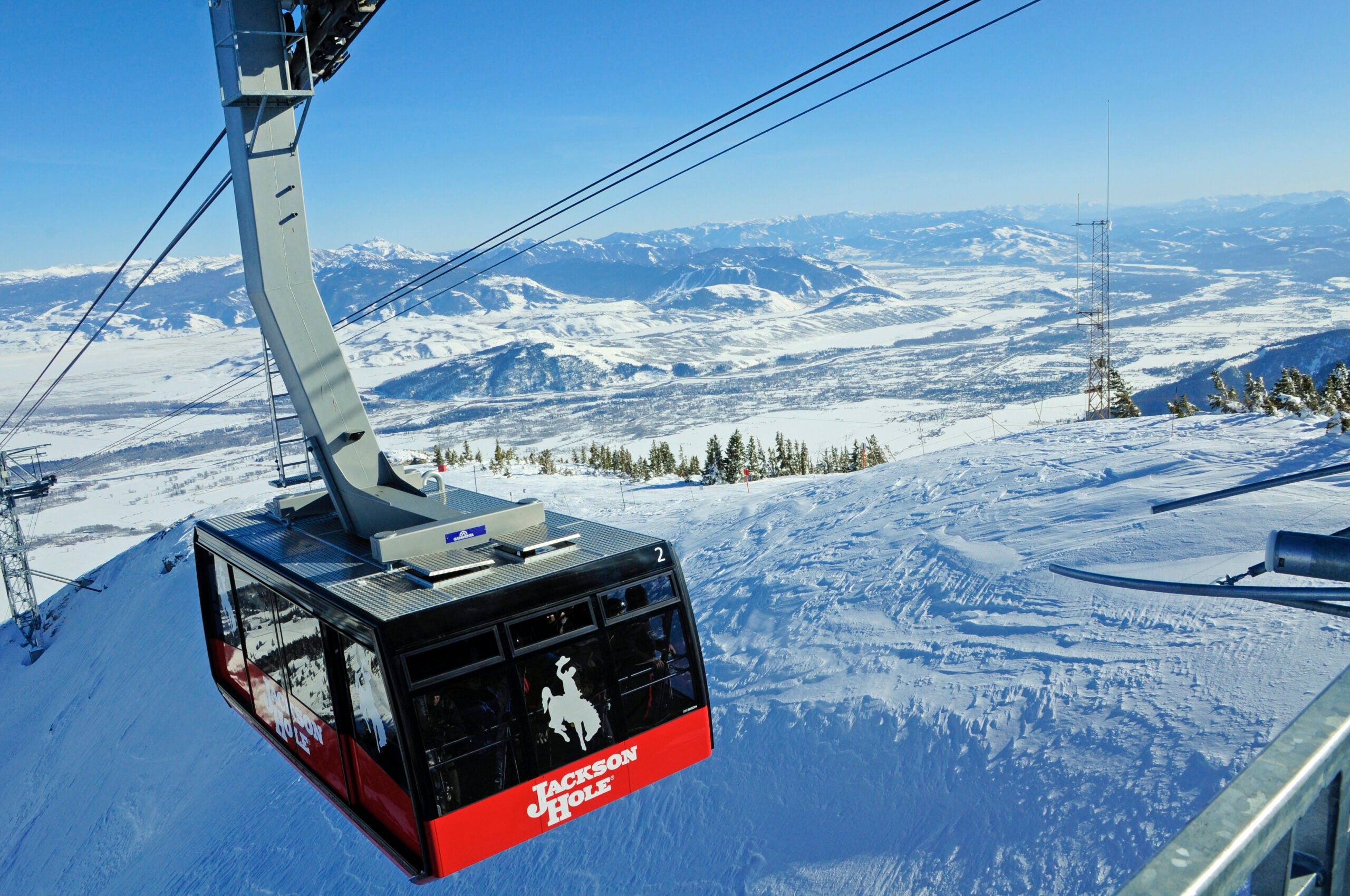Patagonia is revered by fans—and reviled by detractors—for its well-publicized political and social stances against any company or cause that doesn’t align with the outdoor brand’s values. The latest target of the company’s corporate activism: Jackson Hole Mountain Resort.
According to a report by the public-interest news service WyoFile, Patagonia will no longer sell products to JHMR-owned retail shops because one of the resort’s owners, Jay Kemmerer, held a fundraiser for the right-wing House Freedom Caucus. The article says JHMR owns and operates retail stores in Teton Village and Hoback Sports and the Jackson Hole Resort Store in Jackson, Wyoming.
Kemmerer acquired JHMR in 1992, according to his bio on the resort’s website. WyoFile said he “co-hosted a fundraiser August 5, 2021, at a posh Jackson hotel for the House Freedom Caucus. U.S. Rep Marjorie Taylor Greene (R-Georgia), former Trump White House Chief of Staff Mark Meadows, and U.S. Rep. Jim Jordan (R-Ohio) headlined the event. Admission to the event cost a minimum of $2,000 per couple.”
That event drove Patagonia to pull its business from the JHMR shops. Corley Kenna, head of communications and policy at Patagonia, told WyoFile that the decision to then stop selling to JHMR centered on the brand’s “strong commitment to using both our business and our brand to advocate for our strong priorities. When there’s a misalignment on that, then we take action.”
“Those that know us in Jackson Hole are aware that we make business decisions and build relationships in alignment with our values and advocacy efforts,” Kenna added in a statement to OBJ. “Just over a year ago, we stopped advertising on Facebook and Instagram as part of our commitment to stop the spread of hate speech and misinformation on climate. We join with the local community that is using its voice in protest, and we will continue to use our business to advocate for stronger policies to protect our planet, support thriving communities and a strong democracy.”
In a statement, JHMR president Mary Kate Buckley focused on the resort’s environmental actions, implying that those positions more closely align with Patagonia’s values than anything the fundraiser might have negated.
“JHMR retail will continue to offer world-class brands across our retail locations with the aim to provide the best service and product assortment for our guests,” Buckley said. “We have been a leader in the ski industry in adopting initiatives to reduce our energy consumption, recycle the consumables used by our employees and guests, and treat the spectacular natural habitat which surrounds us with vision and care.”
WyoFile said Kenna “would not disclose how much business Patagonia does with the ski and resort company.” But in the article, the Patagonia spokesperson added that JHMR is the brand’s “largest customer in an area—that’s really critical. That tells you something about the importance of this relationship. We don’t take ending it lightly.”
The “Get Woke, Go Broke” Fallacy
The story has prompted some of the usual comments, including a few in support of the brand’s move and others claiming Patagonia is entering dangerous territory because it could lose customers who don’t agree with the stance or who find the brand’s position hypocritical. After all, some argue, how can a brand speak out on this kind of perceived injustice when it regularly uses plastic packaging and manufactures some goods in China?
But these types of reactions, including some calls for boycotts of the company’s products, rarely cause too much financial trouble for outdoor brands or even companies with a broader appeal, such as Nike.
The North Face, a subsidiary of VF Corporation, found itself the target of some supposed “boycotts” when the brand took a Patagonia-like action and refused to make co-branded jackets with an oil and gas company. The North Face might have taken a minor PR hit in the eyes of some, but it still notched a staggering 93 percent sales growth in the most recent quarter.
The same phenomenon appears to happen regularly with Patagonia, whose activist actions disprove the common refrain that companies that “get woke, go broke.” If anything, the brand’s top- and bottom-line numbers soar when Patagonia is in the crosshairs of some controversy.
In recent years, the company famously defended the protection of public lands in Utah, even backing out of Outdoor Retailer until that show moved out of Salt Lake City. And this year alone, the company has issued statements condemning violence at the U.S. Capitol and standing up for voting rights.
But Patagonia continues to win consumers’ hearts as well as their wallets. A recent poll from Axios ranking the reputations of American companies named Patagonia the most credible business in the U.S., based on scores in seven categories: affinity, ethics, growth, products/services, citizenship, vision, and culture.


